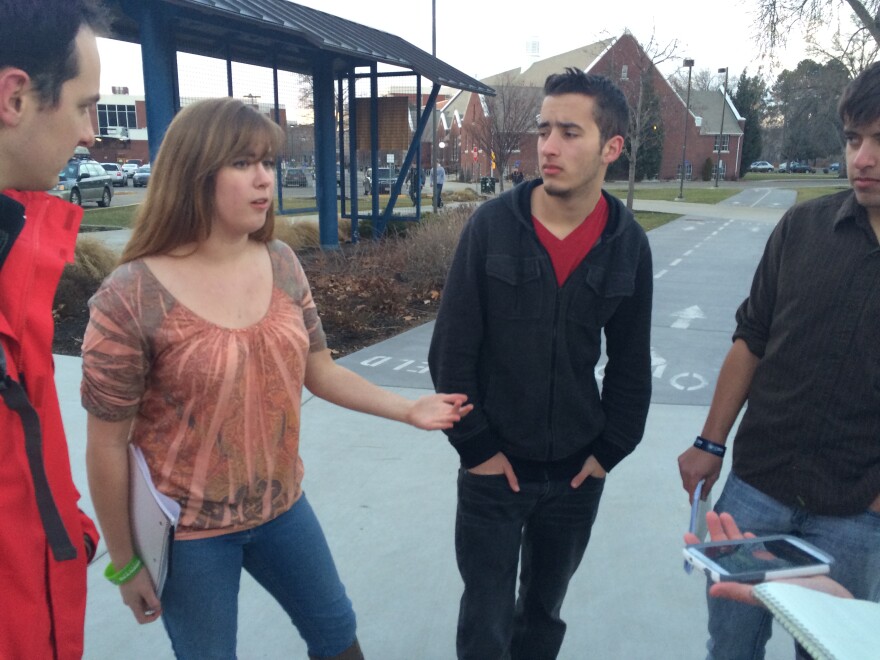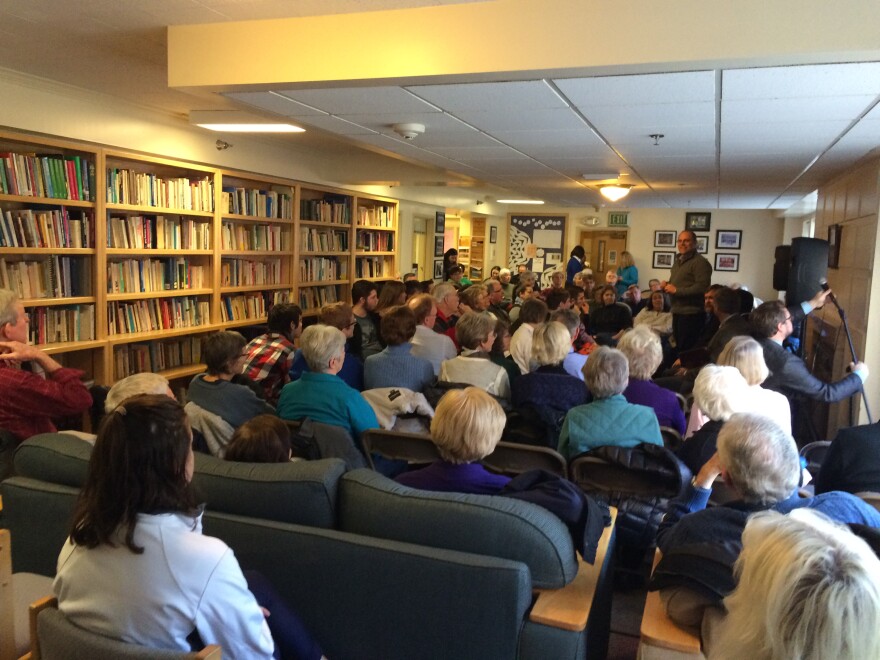Nowhere else but on a college campus do you, two days after a presidential visit, sit down and unpack the event with a raft of scholars, some of the school’s best-brained students and a group of highly motivated learners from the community.
This was simply a university being a university on Friday afternoon in Driscoll Hall at Boise State University – and the place was packed for the unpacking.
Given the setting, it made sense that the scholars tossed around references to King’s Letter from a Birmingham Jail and Madison’s Federalist No. 10, and elicited polite laughter at the invocation, again, of theologian Reinhold Niebuhr’s fondness for the dialectic, and, oh, yes, a rundown of the history of graphene – which caused one student to say, as he posed a politics-related question to the scholars, “I almost want to ask a question about graphene because I love that stuff, too.”
The Honors College hosts these gatherings every Friday afternoon, but this one, because of President Obama’s speech in the Caven-Williams Sports Complex on Wednesday, was open to the public. About 30 community members who take classes through the university’s Osher Institute took advantage of the occasion.
And almost everyone had questions.
One student asked why Obama would, in essence, double down by seeking approval of a host of nakedly partisan proposals – tax credits, closing loopholes on the wealthy, free community college – when his agenda faces inhospitable prospects in a Republican-controlled Congress.
The New York Times, in its coverage of the State of the Union speech, noted that Obama was confident and at times cocky. What chance, though, the student asked, do these proposals have of getting through?
No chance, came the answer.
One audience member bemoaned what she called the anti-intellectualism behind criticism of Obama; another said he couldn’t remember a time the president, this one, was less respected or more loathed; yet another wanted to know if the community could take the same tour of the lab Obama did.
The anti-intellectualism question drew a reference to the definitive work on the topic, “Anti-Intellectualism in American Life” by Richard Hofstadter, and an explication of a discussion first promoted by Oakland, Calif., pastor and columnist Byron Williams that there was no room in public discourse today for the new N-word, nuance.
The disrespect-for-Obama question prompted a gentle reminder that his two predecessors attracted more than their fair share of brickbats and that a Philadelphia newspaper greeted the election of a guy named Thomas Jefferson by scorning him as an infidel.
And, yes, tours likely can be arranged.
The panel, moderated by Associate Vice President for Communications and Marketing Greg Hahn, featured:
-- Andrew Finstuen, Honors College director, history professor and interim dean of the university’s new College of Innovation and Design, whose award-winning book “Original Sin and Everyday Protestants: The Theology of Reinhold Niebuhr, Billy Graham and Paul Tillich in an Age of Anxiety” discusses Obama’s respect for Niebuhr.
-- Justin Vaughn, whose book “The Rhetoric of Heroic Expectations: Establishing the Obama Presidency” explores whether Obama’s words made it harder for his agenda to be enacted, teaches political science and studies political communication.
-- David Estrada, who studies emergent semiconductor nanomaterials and bionanotechnology – very big thoughts about very tiny things. Estrada teaches materials science and engineering, and was one of the professors who escorted the president on his tour of the computer lab before his speech. Graphene, Estrada explained, is thinner than paper and stronger than steel.
-- College of Business and Economics professor Geoffrey Black, who studies natural resource and energy economics and regional development issues. He is also involved with a firm that explores geothermal and biomass electrical generation.
After the session adjourned, a group of five students stood – some jacketless and occasionally shivering – outside the SUB and animatedly rehashed the issues brought up during the panel with a reporter for the student newspaper, the Arbiter. Although their eventual goal was hot chocolate indoors, their primary goal was an assay of the ideas. Nowhere else but on a college campus in the wane of afternoon on a Friday.

Copyright 2015 Boise State Public Radio


